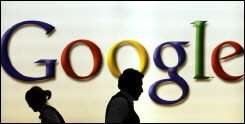Google's library project forces important media decisions

Sometime in the near future, a federal judge will decide whether Google can proceed with its plan to create a digital library and bookstore out of millions of old books scanned from libraries around the world.
Google Book Search has already spawned a class-action lawsuit, and now, a surge of opposition from scholars, consumer advocates and business competitors who contend the plan gives Google too much control over a priceless store of information. The legal issues are complex. But the impact and implications of the plan, which would create a copyright framework for old books that would persist into the 22nd century, could be huge, some say.
"It really is the most important copyright dispute we're currently facing," said James Grimmelmann, a professor at New York Law School and a former Microsoft programmer. "I would say this whole controversy has the potential to really affect how we access all kinds of media, not just old ones, but also new ones."
If Google is successful in rewriting a major area of copyright law through its proposed settlement of the lawsuit, someone else could try something similar for music or photographs. "It's a really interesting way to break a lot of logjams in copyright law," Grimmelmann said. "But are we opening a Pandora's box?"
Here's a look at three key issues that have emerged at the center of the controversy.
ORPHAN BOOKS:
Copyright holders would be paid under the plan for the right to scan their books, but what about the vast number of out-of-print books whose rights holders can't be found?
Google would not have to share revenues from these "orphan books." Google and its partners in the settlement, the Authors Guild and the American Publishers Association, say less than 15 percent of the estimated 5 million to 8 million out-of-print but copyrighted books covered by the settlement will be orphans. The plan establishes a Book Rights Registry, funded with $34.5 million, to find copyright holders.
"It's not that tricky to locate the author if you have an organization that is devoted to doing it," said Paul Aiken, executive director of the Authors Guild. If a court approves the settlement, Aiken says, cash incentives will attract rights holders.
Opponents don't see it that way. Fastening on court filings that show only about 1 million rights holders have been identified, they say Google could realize a windfall on what will be millions of orphan books.
One solution that seemed to strike a chord with Judge Denny Chin at the recent court hearing was a suggestion from a lawyer for the San Francisco-based Internet Archive to require all authors and publishers to opt in to the plan. Under the current settlement, rights holders are automatically included unless they opt out.
Opt-in would ensure "it's in Google's interest and the interest of the partners to really find" rights holders, said the lawyer, Hadrian Katz. "They will really scour the earth."
Google and its partners say an opt-in plan wouldn't work because they need a critical mass of millions of titles at the start for the system to work.
PRIVACY:
Privacy advocates argue that Google could track and retain not only the titles people access through Book Search, but also which pages they view, and the notes they make on the pages.
Cindy Cohn, the San Francisco-based legal director for the Electronic Frontier Foundation who spoke at the court hearing in opposition to the book plan, said the group has repeatedly urged Google to incorporate many of the same privacy standards that public libraries have, such as never turning over library records to police without a warrant.
Google wanted to make such decisions on a case-by-case basis.
"It's tremendously important" for Google to adopt the library standards, Cohn said. "The ability to be able to engage in intellectual inquiry without somebody being tracked -- it's an important piece of free expression."
Aiken said, however, that in a public library, privacy for people using Google Book Search would be preserved because Google Book Search would provide terminals that could be used anonymously -- unless, Aiken said, a searcher were to enter into the terminal their Gmail address or some other identifier.
COMPETITION:
If the plan is approved, Google would have exclusive rights to grant access to its millions of digitized books. Opponents and the U.S. Department of Justice say this could give the company a monopoly, able to set prices and control new business models.
The vast amount of information would include the bibliographies to millions of books, as well as their text, which could improve the quality of Google search. That could give Google a huge advantage over competitors, opponents say.
Google, however, says scanning books to bolster the quality of search is "fair use" under copyright law. "Obviously, we think there is value in search," said Dan Clancy, the Google executive in charge of Book Search, "but I think to the extent that any (competitors) feel similarly, they can invest, similarly as we have, in digitizing books."
(c) 2010, San Jose Mercury News (San Jose, Calif.).
Distributed by McClatchy-Tribune Information Services.





















